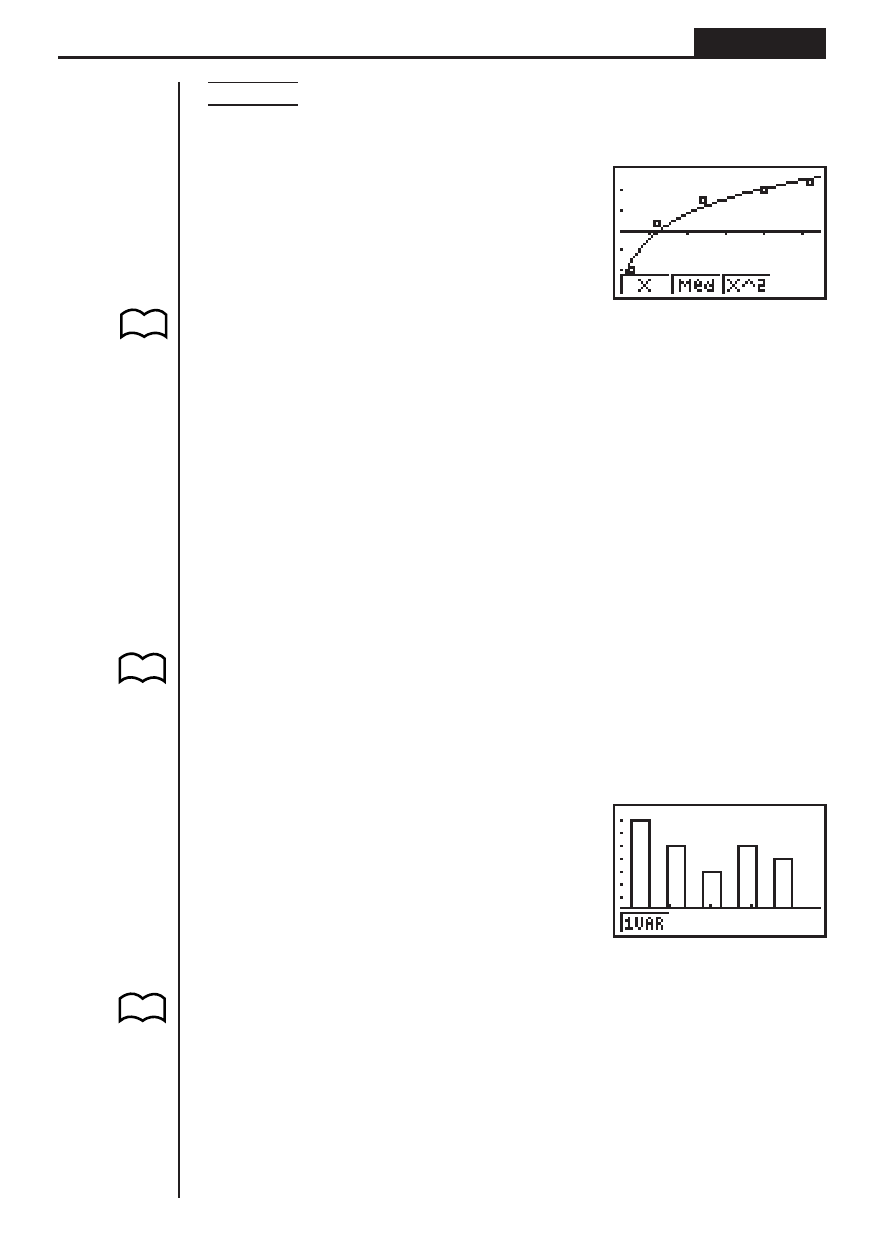Statistical graphs and calculations chapter 7 – Casio fx-7400G PLUS Statistical Graphs and Calculations User Manual
Page 13

107
Statistical Graphs and Calculations
Chapter 7
Example
To graph a logarithmic regression
While logarithmic regression parameter calculation results are on the display, press
4 (DRAW).
4(DRAW)
For details on the meanings of function menu items at the bottom of the display, see
“Selecting the Regression Type”.
3. Calculating and Graphing Single-
Variable Statistical Data
Single-variable data is data with only a single variable. If you are calculating the
average height of the members of a class for example, there is only one variable
(height).
Single-variable statistics include distribution and sum. The following three types of
graphs are available for single-variable statistics.
k
k
k
k
k Histogram
From the statistical data list, press 1 (GRPH) to display the graph menu, press
[4 (SET), and then change the graph type of the graph you want to use (GPH1,
GPH2, GPH3) to histogram.
Input data into a list, make the required settings, and then draw the graph.
k
k
k
k
k Box Graph
This type of graph lets you see how a large number of data items are grouped within
specific ranges. A box encloses all the data in an area from the first quartile (Q1) to
the third quartile (Q3), with a line drawn at the median (Med). Lines (called whiskers)
extend from either end of the box up to the minimum and maximum of the data.
From the statistical data list, press 1 (GRPH) to display the graph menu, press
[4 (SET), and then change the graph type of the graph you want to use (GPH1,
GPH2, GPH3) to box graph.
P.105
P.101
(G-Type)
(Hist)
P.101
(G-Type)
(Box)
